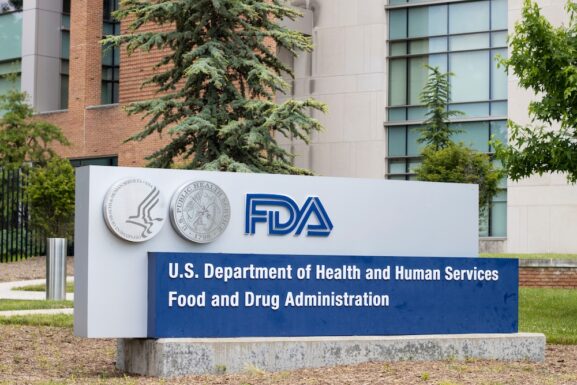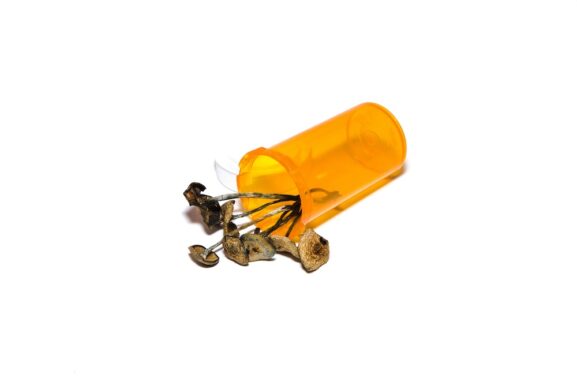Psilocybin Promotes ‘Inner Healing’ in Depression Patients, Study Finds
Groundbreaking research published in the Journal of Psychopharmacology has further illuminated the potential of psilocybin, the active compound in “magic mushrooms,” to trigger inner healing mechanisms in patients suffering from depression. This study, led by Dr. Robin Carhart-Harris and his team at Imperial College London, offers compelling insights into how psilocybin-assisted therapy could revolutionize the treatment of depression, particularly for those who have not responded to conventional treatments.
The Study’s Findings
Dr. Carhart-Harris’s study involved participants diagnosed with major depressive disorder, who had previously tried standard treatments such as selective serotonin reuptake inhibitors (SSRIs) and trauma-focused psychotherapies with limited success. The study’s results are striking, suggesting that psilocybin can significantly reduce depressive symptoms by facilitating a profound inner healing process.Participants underwent two psilocybin-assisted therapy sessions, spaced one week apart, with each session lasting approximately six hours. These sessions were conducted in a controlled environment to ensure the safety and well-being of the participants. The findings revealed that psilocybin treatment led to substantial and lasting reductions in depression severity, with many participants experiencing improvements that persisted for months after the treatment.
RELATED: Psychedelic Therapy Is Now Legal in Colorado Amid Political Divide
Mechanisms of Action
The therapeutic effects of psilocybin are believed to stem from its ability to alter brain function and promote neural plasticity. Psilocybin interacts with serotonin receptors in the brain, leading to changes in perception, mood, and cognition. These changes can help patients break free from entrenched negative thought patterns and gain new perspectives on their mental health struggles.The study also suggests that psilocybin facilitates a process of “inner healing,” where patients confront and process unresolved emotional issues. This process is supported by the structured therapeutic environment, which includes guided sessions with trained therapists. The combination of psilocybin’s pharmacological effects and the supportive therapeutic setting appears to create a powerful catalyst for emotional and psychological healing.
Broader Implications
The findings from Dr. Carhart-Harris and his team add to the growing body of evidence supporting the use of psychedelics in mental health treatment. Other studies have shown that psilocybin can be effective in treating various mental health conditions, including anxiety, post-traumatic stress disorder (PTSD), and addiction. The resurgence of interest in psychedelic medicine is driven by the need for new and effective treatments for mental health disorders, which are often resistant to conventional therapies.Regulatory agencies, such as the U.S. Food and Drug Administration (FDA), are taking note of these promising results. The FDA is expected to make a decision on the approval of MDMA-assisted therapy for PTSD in the near future, which could pave the way for broader acceptance of psychedelic-assisted therapies. If approved, these treatments could become a valuable addition to the mental health care toolkit, offering hope to millions of people who struggle with treatment-resistant conditions.
Legal Landscape
The legal status of psilocybin varies widely across the globe. In the United States, psilocybin remains a Schedule I substance under federal law, indicating a high potential for abuse and no accepted medical use. However, several states and municipalities have taken steps to decriminalize or regulate its use. Oregon was the first state to legalize psilocybin for therapeutic use in 2020, and Colorado followed suit in 2022. Other states like California, New Jersey, and Vermont are considering similar measures.Internationally, the legal status of psilocybin is equally varied. In the Bahamas and Jamaica, psilocybin is legal to possess and use, but not to sell. Brazil has a unique legal framework where psilocybin mushrooms are not explicitly illegal, leading to a thriving underground market. In the Netherlands, magic truffles, which contain psilocybin, are legal and widely available, although magic mushrooms themselves are prohibited. Australia’s Therapeutic Goods Administration has recently allowed authorized psychiatrists to prescribe psilocybin for treatment-resistant depression, marking a significant step forward in the region.
Legal Status of Psilocybin
| Region | Legal Status | Notes |
|---|---|---|
| United States | Schedule I (Federal) | Legal for therapeutic use in Oregon and Colorado |
| Canada | Illegal (Federal) | Exemptions for medical and research purposes |
| Netherlands | Legal (Magic Truffles) | Magic mushrooms are prohibited |
| Brazil | Not explicitly illegal | Thriving underground market |
| Jamaica | Legal | No restrictions on possession or use |
| Bahamas | Legal | No restrictions on possession or use |
| Australia | Illegal (Federal) | Authorized psychiatrists can prescribe for depression |
| UK | Class A drug | Strict penalties for possession and distribution |
| Germany | Illegal | Limited medical research exemptions |
| Portugal | Decriminalized | Possession for personal use is not criminalized |
Challenges and Considerations
Despite the promising results, there are several challenges and considerations that need to be addressed before psilocybin-assisted therapy can become a mainstream treatment option. One major concern is the potential for adverse effects, particularly in individuals with a predisposition to psychotic disorders or bipolar mood disorders. Additionally, the long-term safety and efficacy of psilocybin treatment need to be further investigated through larger, randomized clinical trials.Another important consideration is the need for proper training and certification for therapists who administer psilocybin-assisted therapy. The therapeutic process requires a deep understanding of both the pharmacological effects of psilocybin and the psychological dynamics involved in psychedelic experiences. Developing standardized protocols and guidelines for therapy sessions will be crucial to ensure the safety and effectiveness of the treatment.



